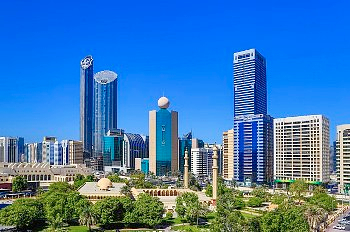
Dubai is well placed to support the vast demographic growth it will see by the time of the World Expo in 2020, planners believe. The UN expects more than 7.9 million people to be living in the UAE’s major cities by 2020 — many of them professional expatriates.
More than 226 million people will be living in cities throughout the Middle East and North Africa (MENA) by then, accounting for nearly 62 per cent of the region’s total population. The statistics, part of the UN Department of Economic and Social Affairs’ World Urbanisation Prospects report, forecast a two per cent average annual urbanisation growth rate across the MENA region until the end of the decade, as predominantly youthful populations gravitate towards cities in search of improved work opportunities and better lifestyles, as already witnessed in Dubai.
But these volumes are well catered for, according to Taher Diab, Director of Strategy and Planning for the Dubai Supreme Council of Energy. He says the emirate has implemented a number of policies to encourage green technology adoption that will preserve its resources for future and growing populations. “Prudent government policies are key drivers to regulate the market and draw investors in clean energy technologies,” Diab said in a media statement ahead of the Future Cities conference, which begins tomorrow and runs until October 10 at the Dubai World Trade Centre.
“Dubai is promoting the principles of Public Private Partnerships and has introduced regulations to boost market dynamics for partnerships on a number of projects,” he added.
Constant migration towards regional cities will put greater stress on already limited urban infrastructure and resources, urging governments to implement strategies that create resilient and sustainable cities for the future. Other countries likely to support dense urban conglomerations are Saudi Arabia, which is forecasted to have 28.1 million city residents by 2020, Bahrain (1.3 million), Qatar (2.1 million) and Oman (2.4 million). Some 45.1 million people are expected to reside in GCC cities by then, or about 85 per cent of the total estimated population.
The Future Cities conference will explore major issues facing world leaders and urban planning experts, including how cities carry out efficient water distribution; the positive impact tourism can have on the environment; how cities can plan for post-recession development and what strategies can provide affordable energy for everyone.











